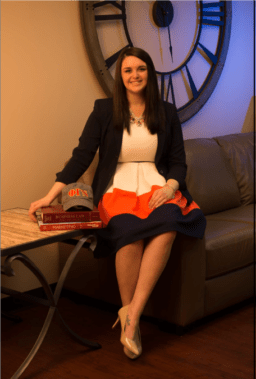If you’ve gained admission to law school, you’re starting to realize the hardest part isn’t just getting in — it’s excelling once classes start in next fall.
We’ve asked seven Law Preview alums to reflect back apply 20/20 hindsight to some of your burning questions, like: “Knowing what you know now, what advice would you give to students who are about to begin their 1L year?”, “What are the biggest mistakes that you saw classmates make during the 1L fall semester?” and “What were your favorite study aids during 1L and what made them so helpful?”… and, our personal favorite, “What is the one thing you wished you did NOT stress out about during the law school application process?”
Check out the article below to read their objective suggestions for navigating law school and, in some cases, learn what they wished they had done differently.

Kate Fox
University of Pittsburgh School of Law
Knowing what you know now, what advice would you give to students who are about to begin their 1L year?
When you start law school, it’s important to make friends, get to know the people in your class, and find a group in which you can thrive. I learned very early on that there were people I loved to hang out with, but I would not be able to study with them. Because of that, I think it’s important that you meet people you can blow off steam with and people you can really learn with and from. It is possible to have both, but at least make the distinction for yourself so that you can get the most out of your social time.
Second, it doesn’t matter how much or in what ways other people study. It doesn’t matter how much someone participates in class. It doesn’t matter who visits the professor’s office hours the most. What does matter is the effort you put in for your own education. Don’t compare yourself to what other people are doing. It’s always great to get tips and ideas, but don’t doubt your study habits solely because someone else is doing it differently.
Lastly, don’t get caught up only in what is going to be on an exam or how a professor likes something to be worded. Students often only care about what is being tested rather than learning the material for what it is. If you can understand the subject matter without being concerned which bits and pieces will be assessed, you have a better chance of getting the answer right when you are tested. Parsing out the material just to learn the parts that will be tested is not always the most effective way to study something.
What is the one thing you wished you did NOT stress out about during the law school application process?
Whether my LSAT score was good enough. Focus on the other pieces that you can actually improve now!
What were your favorite study aids during 1L and what made them so helpful?
I used online supplement guides with practice questions. They are great because you can test yourself on applying a principle rather than memorizing an outline.
What are the biggest mistakes that you saw classmates make during the 1L fall semester?
I watched so many people get caught up second semester in trying to figure out who had the highest GPA and copying their study habits. Just do your own thing!
What was your favorite 1L subject, and why?
I loved Contracts and Constitutional Law, partially for the subject matter and partially for the professors — thanks Harry Flechtner and Deborah Brake!
Did you purchase new/used casebooks, or rent them? What advantages/disadvantages did you experience — and do you plan to do it differently in coming semesters/years?
I bought most of my books first year, but I wish I had rented more and saved the money. However, I did look back at a few things in my contracts book while writing my Law Review note, so they can potentially come in handy! Plus my bookshelf at home looks awesome. Don’t rent or buy used if other people’s highlighting and annotations bother you — unless you can leaf through before purchasing. I know I had used books where a prior owner did not necessarily highlight the most useful things and it threw me off at first.
How did you handle the competition/stress of 1L? What tactics did you use to avoid the stress that many 1L students experience?
The curve is stressful and everyone wants to be at the top, but it’s not possible. If you are nice to people and focus on yourself, it won’t seem that bad. I know this sounds so silly, but I watched so many people lose credibility solely because of the gossip about grading. It is possible to be at the top of the class while being friends with everyone. Don’t enable sabotage and share what you can. In all honesty, there’s not much you can do to affect other people’s grades, so just work on making yourself better.
Describe the outlining approach did you employed and when/how you began the outlining process.
I tried to outline every week during 1L year. I took notes in class and then did some copy/paste/edit magic into a word document which eventually became my beautifully formatted outline spanning 20-50 pages long. It is a cumbersome process but if you wait too long to put it together, you won’t be able to retain as much. Doing it piecemeal is best. In addition, if you are reading through something and don’t understand, it is better to go in and talk about it with your professor right after you learned it rather than a month or two later.
What time management strategies did you employ to make sure you devoted the appropriate amount of time to each class during the Reading Period?
I don’t think we had a Reading Period at Pitt specifically for studying, but I started studying what I could about a month ahead of time. We were still learning new material, but I still tested myself on the earlier things. I did spend a bit more on the classes with more credit hours because they are worth more, but they also had 30% more material to internalize. A big tip I have is to always study for open-book or open-note tests the same or harder than closed. You don’t want to be wasting time looking something up. In my open tests, I barely looked through my outline and I was able to spend more time analyzing or issue spotting because the rules were already in my head.


